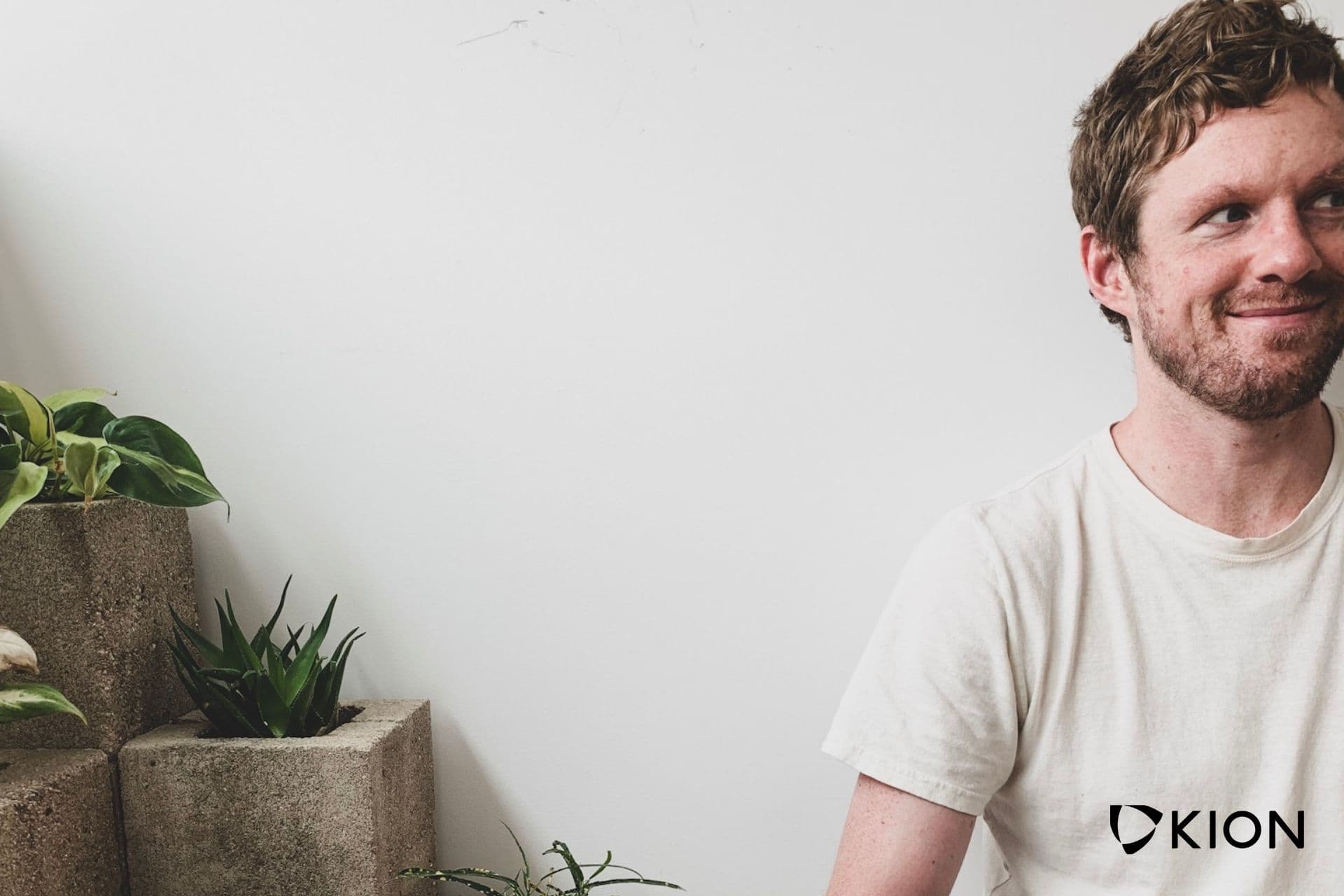It's uncomfortable to meditate, it takes time out of your already busy day, and it makes you shamefully aware of dumb and distracting thoughts. Here's why I do it anyway.
-Guest Post by Alex Baia
1. Meditation Is Uncomfortable
If I take a mental selfie at any moment—whether I’m dicing tomatoes for a salad, or trying to write an article, or just trying to fall asleep—I’ll find my own mind shouting a smorgasbord of odd, spontaneous thoughts at me:
“Your 20s are long over. Time is ticking. You haven’t accomplished enough. You’re going to die.”
“Hey! Hey! What’s happening on Twitter right now! Anything cool!?”
“You know what sounds good? PIZZA. Delicious, pepperoni pizza. Eat it now. Eat. Eat. Eat. Mmmmmm. Pizza.”
“Hey! Don’t fall asleep! Your front door is unlocked!!”
“Whatever happened to the actor Christian Slater? Is he still a thing? Let’s google him. Actually, no, let’s do nothing, then wonder this again in 2 weeks.”
“Hey! Hey! Your apartment complex has a FREE COMMUNITY POOL but you haven’t used it in eighteen months. Come on, man!!”
“What did Jessica mean by that weird text? Let’s think about her message from all angles for the next twenty-five minutes.”
“Seriously, your door is unlocked. I know you just checked it five minutes ago, but it’s unlocked and there are robbers outside, LOL.”
These random thoughts are typically not profound, useful, or relevant in the moment when they occur. They’re more distracting than helpful. But there they are, like uninvited guests to a house party. Sometimes your uninvited party guests are sort of fun for a minute. But mostly they don’t care about your happiness. They just want to break your stereo, spike your punch bowl, and give your cat a mohawk.
Meditation is uncomfortable for me, for starters, because it lays this mental chatter bare in all its dumb glory. Meditation asks me to just sit there without distraction and non-judgmentally observe the chatter. Ugh. Awkward.
This discomfort when I meditate is one of the reasons I know it’s working. Meditation is the most powerful tool I’ve found for becoming more conscious of unhelpful thoughts and simply saying, “Oh, hey Mr. Random Anxiety About My Life Choices. I don’t need you at the moment. Bye bye.”
For me, meditation doesn’t stop distracting thoughts, or negative thoughts, or unhelpful thoughts. It doesn’t let me “control my thoughts,” whatever that would mean.
Meditation is just an awareness tool. And mental awareness is the first step toward finding more self-determination to do what I really want. Real self-determination isn’t possible when you’re being ceaselessly pushed and pulled by little goblins in your head who readily manipulate your emotions but whose existence you won’t acknowledge.
In some ways, living with a human mind is a bit like driving a school bus full of seven-year-olds. Your job is just to get them to school safely. The entire ride they chatter like kids do:
“Ewwwww! Kyle has a BOOGER.”
“I LOVE Justin Bieber!!!!!”
“Ahhhhh! Hey! Hey! …Your front door is unlocked.”
99% of the time, your job as the bus driver is to not to say, “Oh my god, Kyle has a booger!? That’s incredible. We need to pull over and have a heart-to-heart discussion about this BOOGER!”
Instead, you just let the kids talk, and you keep doing your thing. You hear the chatter, but you don’t get wrapped up in it. Your job is to just keep driving the bus.
2. I Ain’t Got Time to Meditate
As the old saying goes: “Try meditating for 20 minutes a day. If you don’t have 20 minutes, try an hour.”
The implication is that busy people get more out of meditating. It makes sense. Busy people have more open threads to be distracted by.
It’s also pretty damn hard for me to internalize the idea that the busier I am, the more I need to meditate. My natural response to feeling rushed in the morning is this: “Hmmm, I’m a little short on time today. Maybe I’ll just skip my 15-minute meditation, just for today!”
But this “natural reaction” is self-defeating. I shouldn’t skip meditating, and I (usually) don’t skip it. Because I know that skipping carries a two-fold price.
First, skipping makes it more likely that I’ll lose the habit altogether. Second, if I skip meditating, my thoughts will drift just a bit easier without my noticing. Yes, I will save, say, 15 minutes, but I will also pay the price with more than 15 minutes in lost productivity from the added distractions and lack of focus.
I don’t want to be hyperbolic here. It’s not that meditating for my usual 5-20 minutes turns me into a monk whose mind is an awe-inspiring instrument of pure focus. That would be sweet, but no. Literally, meditation just helps me focus maybe 5-20% better for the several hours I work that day.
When I’m on my practice, I’m just a bit more likely to observe when my thoughts drift, catch myself, and go, “okay, hello irrelevant thought! bye bye!”—and just return to what I actually wanted to do (which, at the moment, is writing this article about meditation).
Admittedly, I’m a beginner, and I’ve never meditated for more than an hour at a time. But for right now: A 5-20% improvement in focus—which ultimately means a compounding 5-20% bump in the quality of my creative work? I’ll take it.
When I feel tempted to skip my meditation, I remind myself that skipping is like trying to get more done by sleeping less. But this doesn’t work, because under-rested me is unproductive and dumb. Under-meditated me is less focused.
And when I’m well-rested and have a reserve of attention, I can accomplish more in a few hours than I can as a sleep-deprived, distracted zombie who churns away for ten hours. Meditating: it really is the original biohack.
3. Meditation Is Solitude
I think there’s a close relationship between meditation and solitude.
Solitude almost seems a bit passé in our hyper-connected world. But, in a way, solitude has become one of the ultimate luxury goods. This thought occurred to me when reading Cal Newport’s Digital Minimalism, a book about being deliberate with the technologies we let into our lives.
Newport is quick to distinguish loneliness from solitude. Loneliness is a negative emotion: a type of sadness from lack of human contact. Solitude, on the other hand, is a human necessity that many of us deny ourselves. Solitude is being in a space by oneself, without input from other minds. Solitude lets us think, plan, process emotions, and make art. We need it, at least some of the time.
Solitude doesn’t necessarily mean sitting on a desolate cliff pondering metaphysics—though, damn, that sounds great! A writer could find solitude on a public bus, surrounded by commuters, while writing in her journal. Solitude just means we are somewhere alone with our thoughts, without external intrusions on those thoughts.
And as much as it pains me to write this, walking in nature with earbuds in, jamming Swedish death metal, or hanging out alone on the couch reading science fiction are not forms of solitude. Those are forms of mental feeding. Intelligent, fun mental feeding, yes—but still not solitude.
Meditation is by definition, I think, a form of true solitude. You have nothing but yourself and your thoughts, and all you’re doing is mindfully noticing those thoughts without judgment. (That’s one type of meditation, anyway.)
And this brings us full circle, back to the original reason I don’t “like” meditating, but still do it anyway. It forces me to be alone with my little mind goblins, without the comfort of a distracting song or book or Very Important Slack Message.
It’s a pop-culture cliché that someone who hears “voices in their head” is “crazy.” But as human beings, we all hear an internal and incessant monologue of fears, objections, pronouncements, curiosities, urges, doubts, joys, and on and on, throughout our waking lives. It’s the resting state of the human mind to blabber like those kids on the bus.
I’m still early in my meditation journey. I have a lot more to discover. But one thing I’ve learned is that meditation forces me to grow simply by being alone with my own thoughts, being curious, seeing what’s there, not judging it, and then getting up and getting on with my day with a bit more ease and purpose.
Now if you’ll excuse me, I need to check my front door. I’m pretty sure it’s unlocked.
Alex Baia does digital marketing for Kion and writes humor for McSweeney’s, The New Yorker, and Slackjaw.
You can sign-up for his monthly comedy and writing newsletter.











